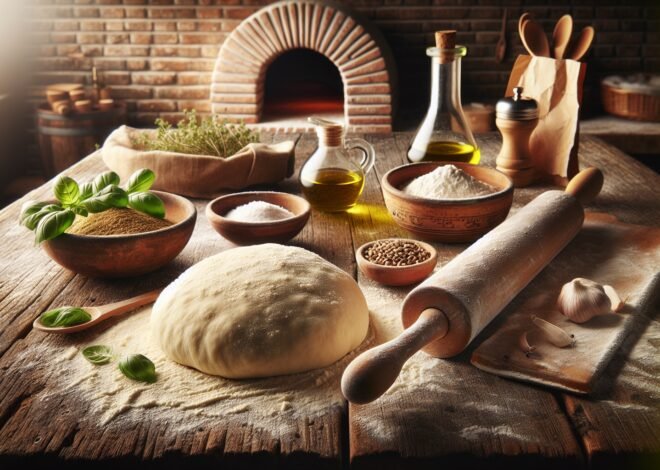
How to Store Oils and Vinegars for Maximum Freshness?
Properly storing oils and vinegars is essential for preserving their flavors and preventing them from going rancid. This guide offers tips on how to store cooking oils and vinegars to maximize freshness and ensure they retain their quality for as long as possible.
Why Proper Storage of Oils and Vinegars Matters
Proper storage of oils and vinegars is crucial for maintaining their quality, flavor, and nutritional value. These kitchen staples are sensitive to environmental factors that can alter their taste and effectiveness. Understanding how storage affects these ingredients ensures they remain a beneficial part of your culinary repertoire.
How Heat and Light Affect Oil Quality
Heat and light are the nemeses of oils, as they accelerate oxidation. Oxidation leads to rancidity, which not only spoils the flavor but can also produce harmful compounds. To protect oils from these elements, store them in a cool, dark place. The pantry or a cupboard away from heat sources works best. Consider the temperature and lighting wherever you store your oils and aim to minimize exposure as much as possible.
How to Tell if Oil or Vinegar has Gone Bad
Identifying spoiled oil or vinegar is key to ensuring your dishes taste their best. For oils, a sour or bitter smell is a clear indicator of rancidity. Vinegars may develop a cloudy appearance or sediment, signaling they have surpassed their prime. Always trust your senses. If the aroma or appearance seems off, it’s better to err on the side of caution and replace the product.
Common Mistakes in Storing Oils and Vinegars
One frequent mistake is storing oils and vinegars near the stove or in areas exposed to sunlight. This exposes them to continuous heat and light, accelerating degradation. Another mistake is using transparent bottles, which allow light to penetrate and harm the contents. Lastly, leaving bottles open or not sealing them tightly can lead to oxidation, affecting both oils and vinegars negatively.
Best Practices for Storing Cooking Oils
Storing cooking oils properly extends their shelf life and preserves their flavor. By adopting a few simple strategies, you can ensure your oils remain fresh and ready for use whenever inspiration strikes in the kitchen.
Storing Oils in Dark, Cool Places
The best place to store oils is in a dark, cool environment. A pantry or cupboard away from heat sources is ideal. Avoid placing oils near ovens, stoves, or windows where they could be exposed to heat and light. Cooler temperatures and darkness slow the oxidation process, keeping the oils fresh for an extended period.
Choosing the Right Bottles for Oils
Selecting the right bottle can significantly impact the longevity of your oils. Dark glass or opaque bottles are preferable as they block light, a key factor in oxidation. Always ensure the bottle has a tight seal to prevent air exposure. If buying oils in bulk, consider transferring them to smaller, dark bottles for daily use to minimize repeated air exposure.
Avoiding Oxidation and Rancidity
Oxidation is the primary cause of oil rancidity. To avoid it, always seal bottles tightly after each use. Consider using vacuum-sealed containers if available. Refrigerating certain oils, like walnut or flaxseed, can also help maintain quality. Keep oils in their original containers if they are designed to minimize exposure, and always store them in appropriate conditions.
Best Practices for Storing Vinegars
Vinegars, though more robust than oils, still require proper storage to maintain their quality and flavor. By following best practices, you ensure that your vinegars remain a vibrant part of your culinary toolkit.
Keeping Vinegar Fresh for Longer
Vinegar is naturally acidic, which helps preserve it, yet proper storage can extend its life further. Always store vinegar in a cool, dark place away from direct sunlight. A pantry or cupboard is ideal. Ensure the bottle is sealed tightly to prevent evaporation and contamination.
Storing Vinegars Away from Heat
Heat can change the flavor and potency of vinegar. Keep vinegar bottles away from heat sources like stoves and ovens. This prevents any alteration in flavor profiles, ensuring the vinegar remains as intended. The optimal temperature for storing vinegar is room temperature or slightly cooler.
How Long Vinegars Last
Vinegars generally have a long shelf life, but the type of vinegar can affect its longevity. White vinegar can last indefinitely, while balsamic or red wine vinegar typically lasts two years when stored properly. Check for changes in color and smell to determine if it’s still good. If you notice significant changes, it might be time to replace it.
Conclusion
Oils and vinegars can lose their quality if not stored correctly. By keeping them in cool, dark places and using the right containers, you can preserve their freshness and flavor for longer. Following these storage tips will ensure your oils and vinegars remain at their best, adding rich flavor to your dishes every time you use them.
FAQ
Should I store cooking oils in the fridge?
Refrigerating cooking oils isn’t always necessary. Most oils, like vegetable or canola, have a stable shelf life at room temperature. However, nut oils and some specialty oils benefit from being stored in the fridge to extend freshness.
What’s the best way to store olive oil?
Store olive oil in a cool, dark place, away from heat and light. Use a tinted or opaque container to protect it from light exposure. This prevents oxidation and keeps the oil fresh longer.
How long do oils last before going rancid?
Oils generally last between 6 months to a year. Olive oil might last up to 2 years if stored properly. Always check the smell and taste, as these can indicate rancidity before the expiration date.
Can I store vinegars in direct sunlight?
Vinegars should not be stored in direct sunlight. Exposure to sunlight can alter the flavor and quality. Keep vinegar in a cool, dark cupboard to maintain its best quality.
What are the signs that oil has gone bad?
Bad oil emits an off, bitter, or sour smell. It may also develop a cloudy appearance or a thick texture. Discard any oil that shows these signs to avoid consuming rancid products.
Should I store specialty oils differently from regular oils?
Specialty oils often require different storage. Nut and seed oils should be refrigerated to prevent them from going rancid quickly. Always check the label for specific storage instructions.











